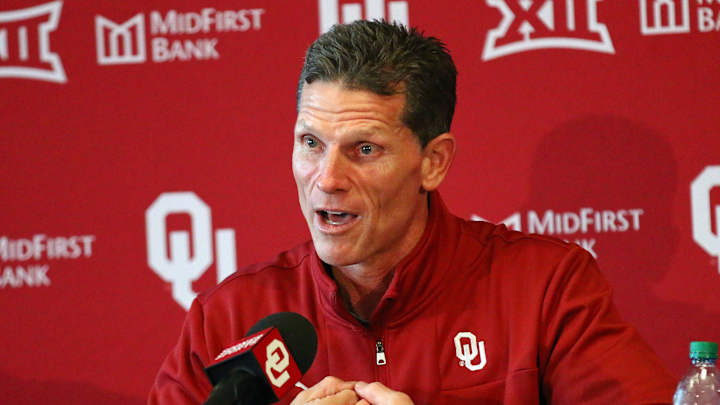Oklahoma Coach Brent Venables Taking a Cautious Approach to NIL

Proceed with caution.
That's how new Oklahoma coach Brent Venables is looking at some recruits when the NIL discussion comes up.
Recruits want to know what their earning opportunities are. They’re going to want to maximize and monetize their name, image and likeness. And they’ll be eager to hear how the schools recruiting them can help facilitate it all.
But Venables says he’ll have his eyes and ears open, too.
“Typically, with the right guys, that’s not one of the first, second, third things that is discussed,” Venables said. “If that’s one of the first or second things, you have to be cautious moving forward.”

When NIL became a reality last July 1 — when the NCAA basically washed its hands of any pending legislation and essentially left it up to individual states to work with their institutions for hammering out the rules — OU already had a roadmap.
When the rule came about, the Sooners announced a partnership with INFLCR (pronounced “influencer”), a firm that works with schools and athletes on NIL monitoring, education and media support.
Athletic director Joe Castiglione said OU “will provide opportunities to out student-athletes that are second to none.”
Six months earlier, Oklahoma launched The Foundry, a campus initiative to help athletes facilitate their own NIL opportunities.
On the business side of things, the Sooners are prepared.
But on the football side, Venables is still testing the waters.
“It is something that you have to have a plan for,” Venables said. “We certainly do.”
But to Venables, NIL earnings are only a drop in the bucket when measuring a recruit’s actual value when choosing a college.
“There’s nothing wrong with making a little short-term cash,” Venables said. “There can be a lot of good in that. I do think you have to look at the long-term investment opportunities and investment on return in terms of education and a development standpoint. That’s going to have more of a generational change than a little short-term money.”
Some schools might approach NIL with a broader brush, facilitating rewards like cash or cars or other items during the athlete’s four years, but then come up short in developing that athlete and maximizing their actual earning potential — as an NFL player, for example.
Venables also takes a more holistic approach to a student-athlete’s time on campus. Sure, NIL money can be life-changing for the elite of the elite, but beyond the marble floors and LED lights and hydrotherapy pools, Venables says he wants his players to have a fulfilling collegiate experience as people.
NIL will be, he said, “probably smaller rather than a big part.”
“You know,” he said, “I’ll be honest. I believe you need to use it to your advantage in every way you possibly can within the rules. But that shouldn’t be the focus of your program.
“If that’s where all the focus is, then maybe those values don’t align. We want to be able to provide in an advantageous way our guys a chance to enhance all those opportunities — all within the rules.”
As states amend and create new rules governing NIL legislation, they will become more closely aligned. Eventually, the NCAA will return to the table in an effort to achieve NIL standardization. This thing is brand new and is guaranteed to evolve.
“I think a year from now, we’ll be in a much different place,” Venables said. “I don’t know which way that will go, but I’m all for players having the opportunities. They have the brand and the stage and the opportunities to create a short-term quality of life for them and their families. I don’t see anything wrong with that.
“If that’s the decision-maker, if that’s what breaks the camel’s back (in recruiting), so to speak, there’s plenty of great players that stand for what we value the most — which is education, holistic development, opportunity to be successful, to be in a winning locker room and winning environment and be challenged in every part of their life.
“If all their focus is (NIL), then more power to them. I think there are so many good ones out there that it might be part of their equation, but that’s not one of their top couple of priorities.”
